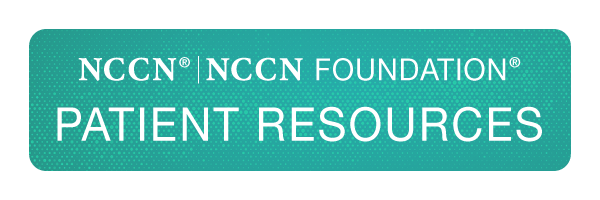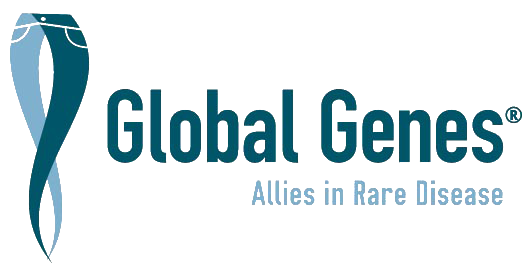Helping patients replace uncertainty with understanding
Because desmoid tumors are rare, the diagnosis can raise more questions for patients than answers. Your patients may feel discouraged, like the tumor is taking over their lives. Understanding the nature of their disease and management strategies can help reduce their confusion.
Resources Library
Find out more about diagnosing and managing desmoid tumors by downloading the resources below.
Disease Education Brochure
Information you need to know about desmoid tumors, diagnosis, and management.
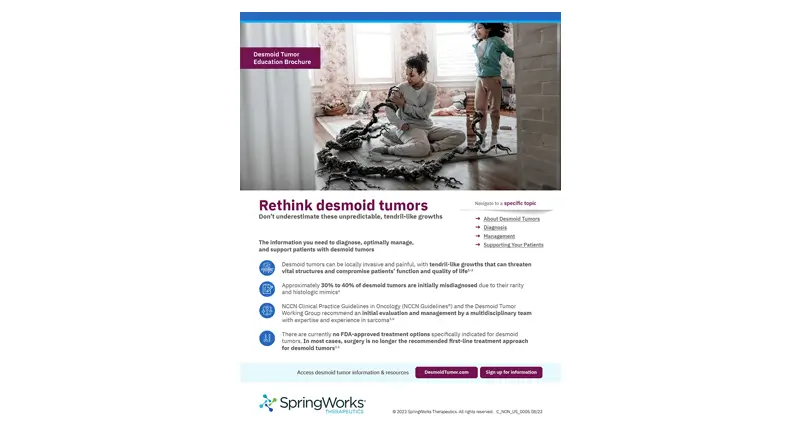
ICD-10-CM Codes for Desmoid Tumors
View location-specific ICD-10-CM codes for desmoid tumors that went into effect on October 1, 2023.
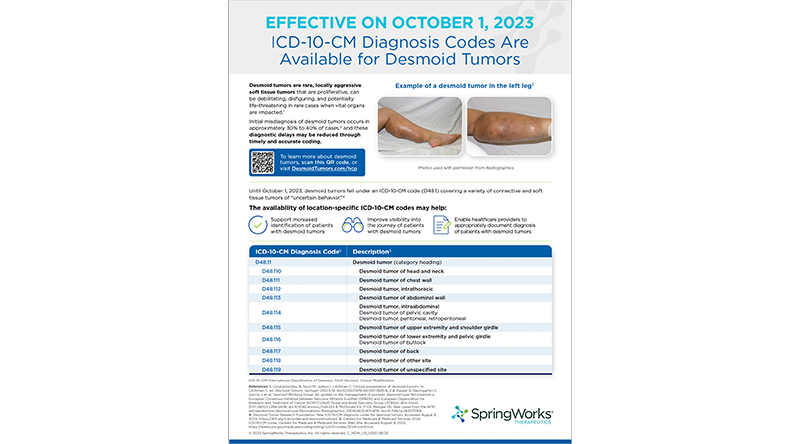
Patient Discussion Guide
Provide FAQs for your patients with desmoid tumors to help inform their conversations with healthcare professionals.
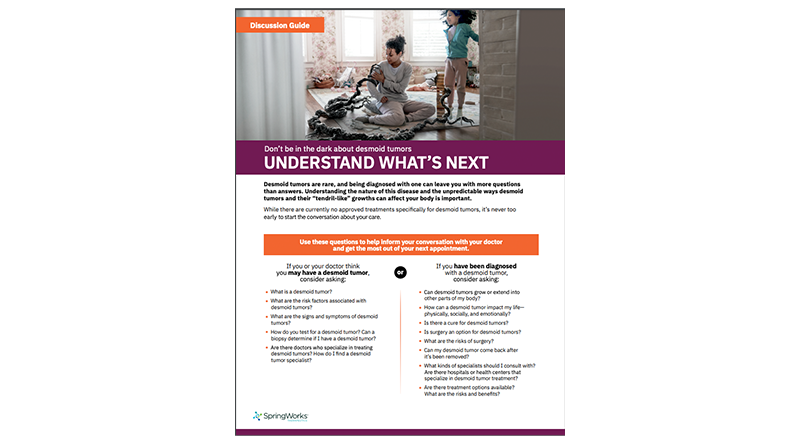
Hear From a Medical Oncologist
In these videos, Dr. Riedel discusses the diagnosis and management of desmoid tumors. Learn more about desmoid tumors and treatment approaches by watching the videos below.
Understanding Desmoid Tumors
Watch Dr. Riedel, medical oncologist from Duke Health and Duke Cancer Institute, provide an overview of desmoid tumors, including pathophysiology, clinical presentations, and impact on patients.
Desmoid Tumor Management for Medical Oncologists
Watch Dr. Riedel, medical oncologist from Duke Health and Duke Cancer Institute, discuss treatment guidelines, desmoid tumor pathophysiology, and systemic therapies.
Advocacy Groups and Helpful Resources
The following advocacy organizations can provide additional support and information for your patients with desmoid tumors.
The organizations listed are independent of SpringWorks Therapeutics, Inc. SpringWorks is providing these links to help patients find more information about desmoid tumors, but inclusion on this list does not represent an endorsement or a recommendation from SpringWorks for any group or organization. Logos are used with permission.
Here is a collection of select publications, including guidelines for treatment protocols.
- Referenced with permission from the NCCN Clinical Practice Guidelines in Oncology (NCCN Guidelines®) for Soft Tissue Sarcoma V.1.2024. © National Comprehensive Cancer Network, Inc. 2024. All rights reserved. Accessed April 29, 2024. To view the most recent and complete version of the guideline, go online to NCCN.org. NCCN makes no warranties of any kind whatsoever regarding their content, use or application and disclaims any responsibility for their application or use in any way.
- Gronchi A, et al. Desmoid Tumor Working Group. The management of desmoid tumours: a joint global consensus-based guideline approach for adult and paediatric patients. Eur J Cancer. 2020;127:96-107. Link
- Kasper B, Baumgarten C, Garcia J, et al. An update on the management of sporadic desmoid-type fibromatosis: a European Consensus Initiative between Sarcoma Patients EuroNet (SPAEN) and European Organization for Research and Treatment of Cancer (EORTC)/Soft Tissue and Bone Sarcoma Group (STBSG). Ann Oncol. 2017;28(10):2399-2408. Link
- Penel N, Chibon F, Salas S. Adult desmoid tumors: biology, management and ongoing trials. Curr Opin Oncol. 2017;29(4):268-274. Link
- Fernandez MM, Bell T, Tumminello B, et al. Disease and economic burden of surgery in desmoid tumors: a review. Expert Rev Pharmacoecon Outcomes Res. 2023;23(6):607-618. Link
ICD-10-CM, International Classification of Diseases, Tenth Revision, Clinical Modification; NCCN, National Comprehensive Cancer Network® (NCCN®).







